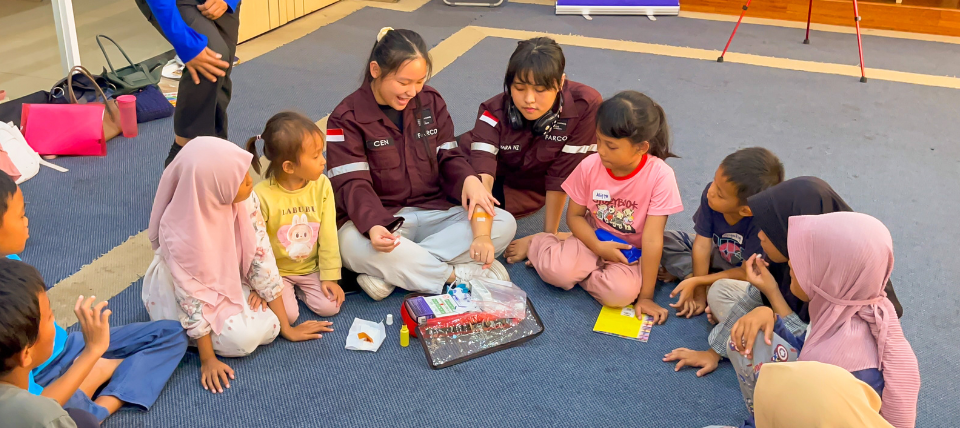First Aid Education for Children at Read Aloud Srengseng

Jakarta, 31 May— When Diana I.A. Ginab, together with Manjakamanana Mamy Jean from Madagascar, Huykea Sun from Cambodia, and Yazan Anan from Syria, our BINUS International Student realized that first aid training remains primarily designed toward adults, while this vital skill can help in critical situations (Tse et al., 2023), they know that this is a gap to equip the community with the knowledge and confidence to respond in crucial moments.
The training is tailored for local community children at Read Aloud Srengseng to teach essential emergency responses through psychological training. Recognizing Indonesia as a geographically complex and disaster-prone country, where earthquakes, floods, and urban accidents are part of everyday life, children are often among the most at risk when emergencies strike, yet they are rarely included in emergency preparedness efforts.
(Photo Credit: Marcelino Yappy/Photo Editor: Mufti Warits)
Children living in overcrowded neighborhoods face a higher risk of road accidents. According to UNICEF Indonesia, 1 in 5 of these accidents can be fatal, so first aid training gives children essential skills to respond to emergency situations and potentially save lives.
“Now I know how to treat wounds properly and how to act during an earthquake,” shared Muhammad Rezqy, one of the young participants.
(Photo Credit: Marcelino Yappy/Photo Editor: Mufti Warits)
The facilitators also provided psychological training that emphasized the importance of compassion, communication, and calm under pressure during this situation using a roleplay scenario.
“The collaboration with BINUS University was truly exciting,” exclaimed Yonda, celebrating the success of the first aid training at Read Aloud Srengseng.
(Photo Credit: Marcelino Yappy/Photo Editor: Mufti Warits)
To sum up, our students embody the spirit of the university’s mission to foster and empower society in building the nation through the Ambassador Project. By teaching children basic first aid skills, we reduce preventable injuries and create safer spaces for children. The training not only made a meaningful contribution to the local community by bringing knowledge, care, and empowerment to children, but also encouraged them to engage meaningfully with local communities and make a lasting and positive impact.
(Words by: Hamzah Ramadhan & Mita Adhisti/Editor: Hamzah Ramadhan)




